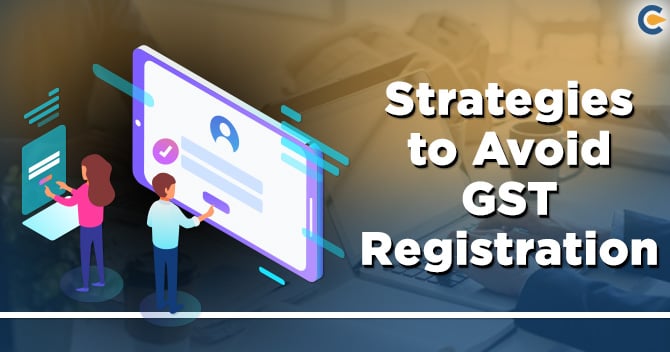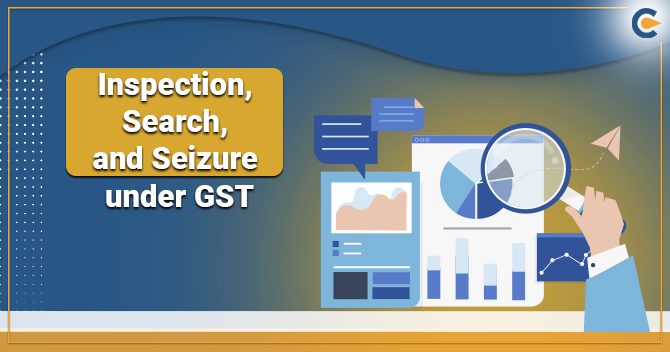GST or Good and Service Tax are a consumption-based tax levied on the supply of goods and services. Moreover, GST is also known as a multi-stage tax that is charged at every stage production chain, i.e., from raw material purchase to the sale of the product. GST is a destination-based tax levied at the stage of the production where the value has been added.


What is a multi-stage tax?
Every product is an outcome of production effort that blends into a series of tasks. The life cycle of a product commences with the purchase of raw material. Then this raw material is sent through a predetermined manufacturing cycle. As soon as the raw material transforms into the desired product, it usually dispatched to the warehouse for restoration. The last step in the product cycle is a sale where the retailer is accountable for selling the product. Thus, being a multi-stage tax, the GST[1] will be levied on every stage of this process.
If you are one of those who wish to avert GST registration by following the footprint of the law, then this blog is for you. This blog can help you overcome the mandatory requirement of being registered under GST. But before we dive into the core topic i:e how to avoid GST registration, let go through some basics of GST registration and see why it is mandatory for the taxpayers.
When it is compulsory for taxpayers to register under GST?
- Whenever the taxpayer surpasses the minimum threshold of annual turnover, i.e., above 40 lakhs.
- Whenever the trading of products crosses the local boundaries.
- The supply of exempted goods along with non-exempted ones.
Kindly note that the turnover-based GST provision is not applied to interstate or e-commerce players. They have to register under GST without exception.
Read our article:GST Registration for E-commerce Operators under GST Regime
How to avoid GST registration if the threshold is crossed?
If you are one of those of entities whose annual turnover is more than Rs.40 lakh, then the GST registration is mandatory. Keep in mind that the calculation of the yearly turnover is done on the pan India basic, not the local territory. Therefore, if a taxpayer rolled out the invoices against the different PAN, the limit of exemption will be multiplied by two. Let us understand this notion through an example.
Suppose there is one entity that has three companies under its possession in the form of HUF, partnership, and a proprietorship. In this case, the total basic exemption of entity will be 40 lacs / business. As mentioned earlier, if some entities are operating multiples companies and engaged in intrastate transactions, the avoidance of GST registration could be feasible up to a specific limit.
How to avoid GST registration in case of inter-state supply?
All those who engaged in the supply of services and goods on the inter-state basis are entitled to avail GST registration. Please note that the notion of turnover doesn’t apply here whatsoever. For instance – if the annual turnover of the company is less than 40 lacs, and it is involved in the inter-state supply, the entity still has to address tax liabilities under GST.
Suppose you are managing a firm that engaged in an inter-state supply to Uttar Pradesh from Delhi. In such circumstances, you can opt to set up a new firm in UP and conduct the supply from this destination only, thus overcoming the hassle of inter-state supply. Now, this would let you take advantage of another threshold limit and allow you to avert the requirement of GST registration for both UP and Delhi.
How to avoid GST in case of the supply of exempted and non-exempted goods?
If an individual is engaged in the trading of exempted goods, then the GST provision would not affect their income whatsoever. On the contrary, if the individual includes the non-exempted products in their supply, then he/she need to get registered under GST.
Tip to avert GST registration and compliance
One can opt to continue with the supply of the exempted goods under their name if they are willing to include non-exempted products in their supply, then it’s better to set up another entity.
Conclusion
Averting the GST registration could lead to substantial penalties, especially if you are accountable for paying taxes on your income. Whether you are a business owner or supplier of goods, it’s essential to get registered under GST to rid of dual taxation and cascading effect of the tax. If you need any sort of aid regarding GST registration, we are here to assist you.
Read our article:A Guide on GST Benefits for Small Businesses & Start-ups













